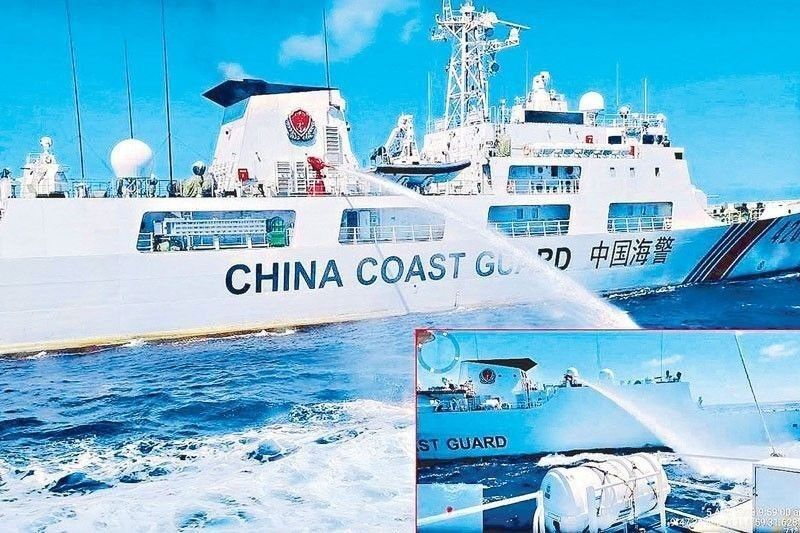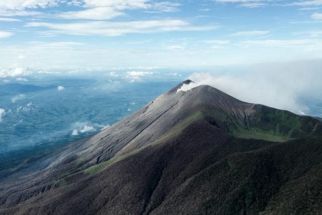AFP bares ‘concerning resurgence’ of China vessels in West Philippine Sea

MANILA, Philippines — The military has reported a “concerning resurgence of Chinese swarming activity” in Philippine waters, with some three dozen Chinese fishing vessels spotted in three land features alone in the past weeks.
In a statement yesterday, the Armed Forces of the Philippines (AFP)’s Western Command (WESCOM) said aerial patrols on Sept. 6 and 7 showed 23 Chinese fishing vessels in the Rozul (Iroquios) Reef, five in Escoda (Sabina) Shoal and two in Baragatan (Nares) Bank.
“The increased presence of CFVs (Chinese fishing vessels) raises concerns regarding the potential implications for Philippines’ maritime security, fisheries conservation, territorial integrity, and preservation of the marine environment. These activities have been a source of tension in the WPS (West Philippine Sea) and have contributed to instability in the region,” the WESCOM said.
It noted an earlier report by the Philippine Navy on Aug. 24 regarding the presence of 33 fishing vessels in Rozul Reef alone.
Aside from intruding into what is clearly Philippine territory, the Chinese have been harvesting corals in the area in violation of environmental laws, according to the WESCOM.
It said it finds the swarming of Chinese vessels around Escoda Shoal alarming because the shoal serves as a marker for the approach to Ayungin (Second Thomas) Shoal, where a small Philippine military outpost is stationed on the BRP Sierra Madre.
“This is where unauthorized Chinese shadowing of Philippine watercraft typically occurs,” the report read, referring to Chinese harassment of resupply missions for troops on the Sierra Madre.
“The repeated swarming incidents in both Rozul Reef and Escoda Shoal emphasize the continuous violation of Philippine sovereign rights and jurisdiction in its western border,” the WESCOM said.
“The collaboration between the defense forces, law enforcement agencies, and international partners is crucial in addressing these challenges, upholding the Philippines’ sovereign rights and jurisdiction and maintaining stability in the region,” it added.
Joint patrol offers
As Chinese provocations continue, the Philippines said it has received offers of joint patrols with the US and other nations.
“Definitely that is in our plan and right now we are in the process of working with the other countries that in fact want to join the joint sail,” AFP chief Gen. Romeo Brawner told reporters at a joint press conference with Admiral John Aquilino of the US Indo-Pacific Command at Camp Aguinaldo yesterday.
Without revealing the other countries that have made the offer, he said such development “is a very good indication of the intent of like-minded countries to come together to promote the rules based international order and to make sure that security in the Indo-Pacific Region is maintained at all times.”
Aquilino said the Philippines and the US have been operating together for decades “so under the title of joint patrols just recently on the fourth of September we executed the first one that was aligned, designed, and built by Gen. Brawner’s team and my team executed with approval from our leaders.”
He said the AFP and the US military will “continue to do that for a long term, ultimately to ensure that we can maintain the freedom of the seas, freedom of airspace so that all the nations in the region can enjoy peace and prosperity.”
Last week, the Philippine Navy’s guided-missile frigate BRP Jose Rizal (FF150) and the US Navy’s guided missile-destroyer USS Ralph Johnson (DDG 114) sailed together some 12 to 24 nautical miles from Palawan.
Brawner and Aquilino were at Camp Aguinaldo yesterday for the Mutual Engagement Board–Security Engagement Board meeting.
Canadian naval ship arrives
Meanwhile, HMCS Ottawa of the Royal Canadian Navy arrived yesterday at the Subic Bay Freeport for a goodwill visit until Sept. 19.
“The arrival of HMCS Ottawa, the first of three Canadian ships to visit this September, is a demonstration of the close and growing relationship between Canada and the Philippines, and of Canada’s commitment to stability and security in Southeast Asia and the broader Indo-Pacific region,” Canada’s Ambassador David Hartman said.
“As maritime nations, Canada and the Philippines share a common interest in upholding a rules-based international order, and maintaining a free and open Indo-Pacific,” he said.
“Through our ongoing engagements in the Indo-Pacific, the Royal Canadian Navy is reinforcing partnerships with navies from across the region. I look forward to working closely with the Philippine Navy throughout our visit to Subic Bay in pursuit of our shared goal of a free and open Indo-Pacific,” said Commander Samuel Patchell, commanding officer of HMCS Ottawa.
Auxiliary supply vessel Asterix, which is leased to the Royal Canadian Navy, will also arrive in Subic Bay on Saturday. By the end of the month, HMCS Vancouver will make a port call in Manila.
“Through our consistent and sustained presence, the Royal Canadian Navy is a tangible example of Canada’s ongoing commitment to increase security and stability in the Indo-Pacific region,” Patchell said.
In a post on X (formerly Twitter), Philippine Coast Guard spokesman Commodore Jay Tarriela said he felt disheartened that some people have doubts on the capability of the PCG to perform its task without help from other countries.
“It is disheartening to hear doubts cast on our capabilities to carry out this duty without the support of other external actors,” he said. He did not say what exactly prompted him to post such sentiment on X.
“I wholeheartedly stand by the Commandant and the 30,000 courageous men and women of the Philippine Coast Guard, who are dedicated to fulfilling our patriotic duty in the West Philippine Sea,” he said.
“We will continue to serve and protect our exclusive economic zone (EEZ), irrespective of any external assistance,” Tarriela added.
The PCG official also pointed out that they are only following orders from President Marcos to “work with all countries to establish a rules-based international order.”
He also stressed that the South China Sea issue should not be perceived as mere rivalry between nations as this “denies us our independence and disregards our legitimate interests.”
The official assured the Filipino people that the PCG remains firm in its commitment to safeguard the EEZ and provide patrol in its waters despite the limitations of their fleet.
Only 10 multi-role response vessels and three offshore patrol vessels of the PCG can be used for patrol in the WPS. But during resupply missions for the Sierra Madre, only two PCG vessels are used to provide escort. — Evelyn Macairan
- Latest
- Trending































